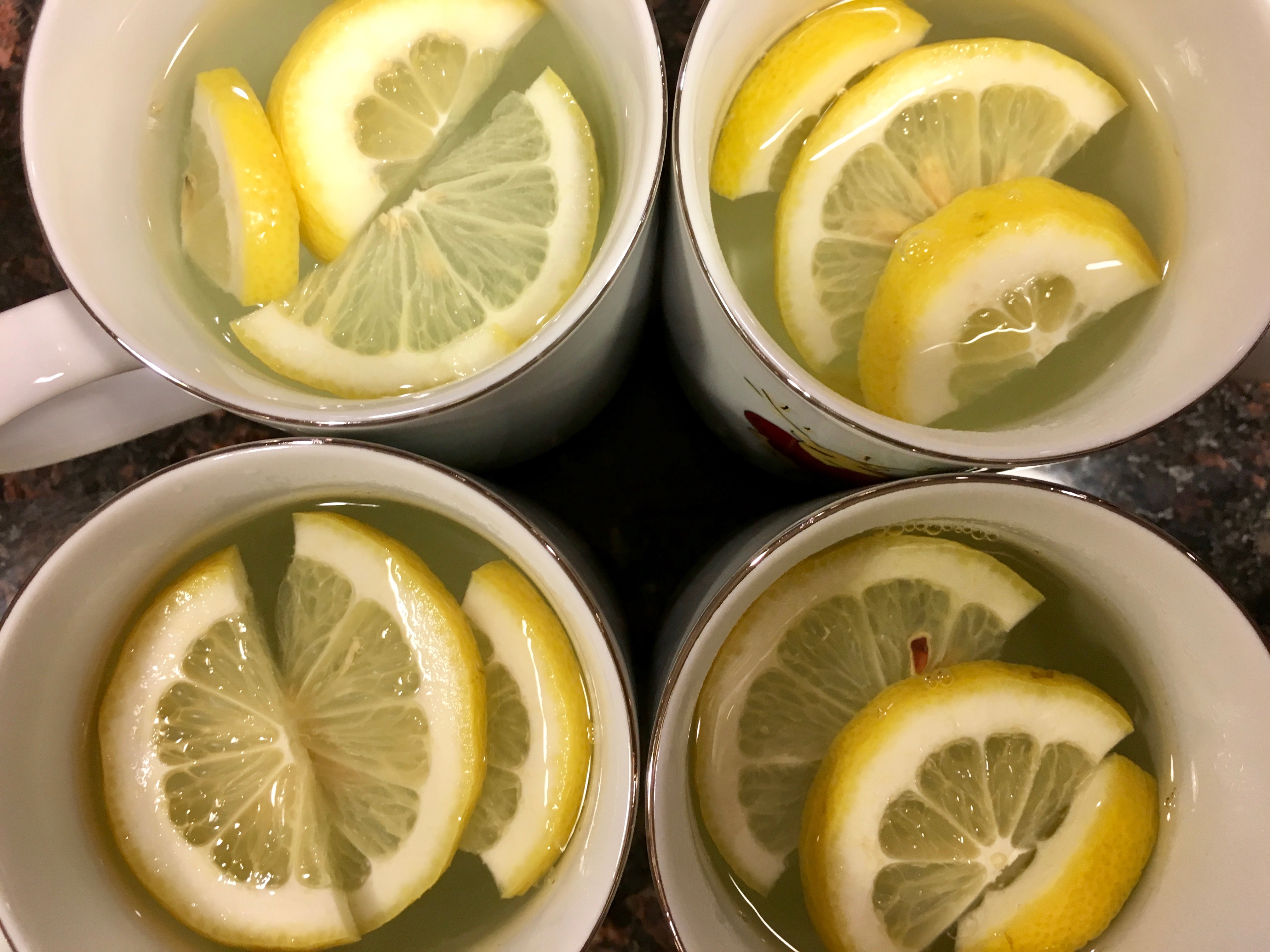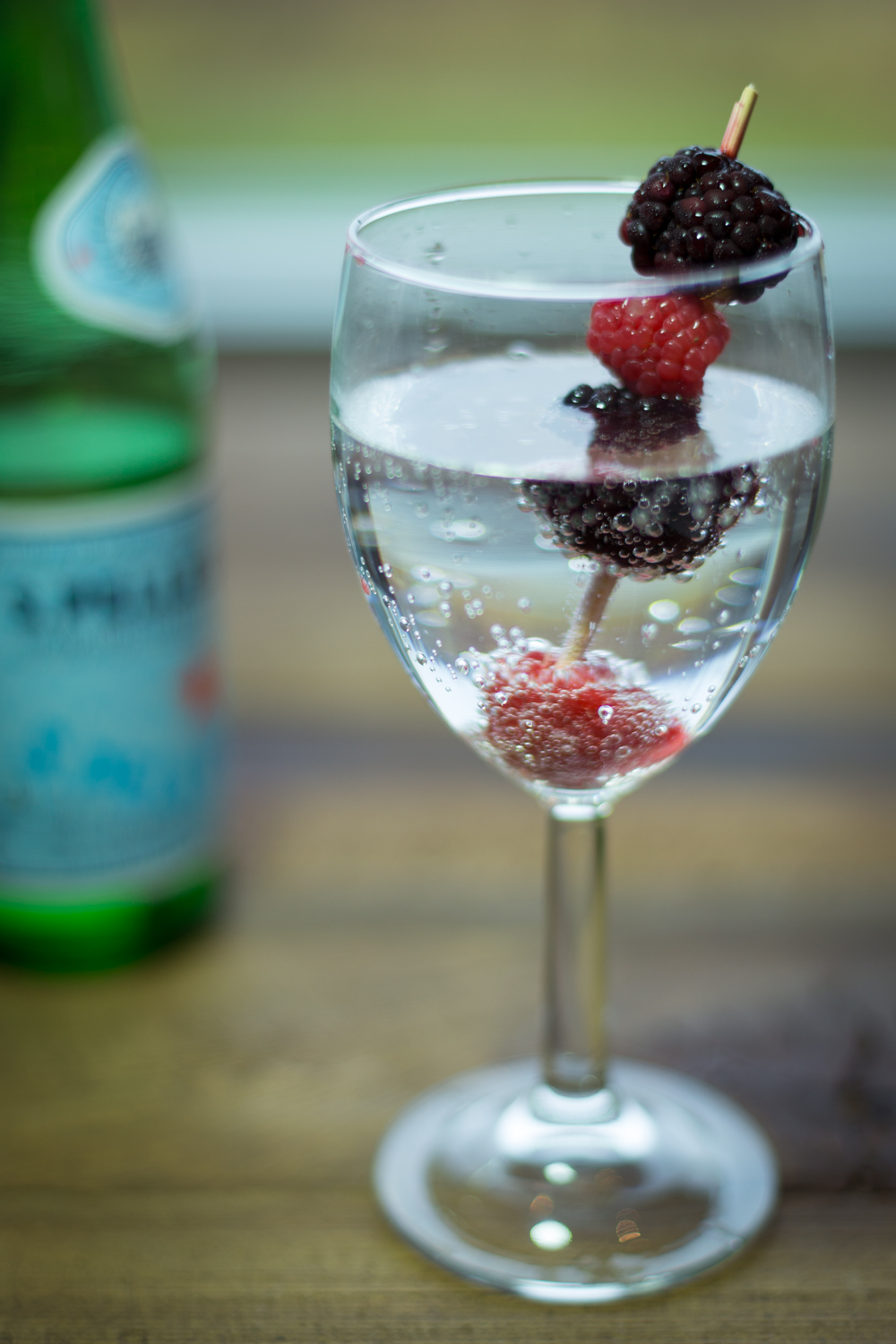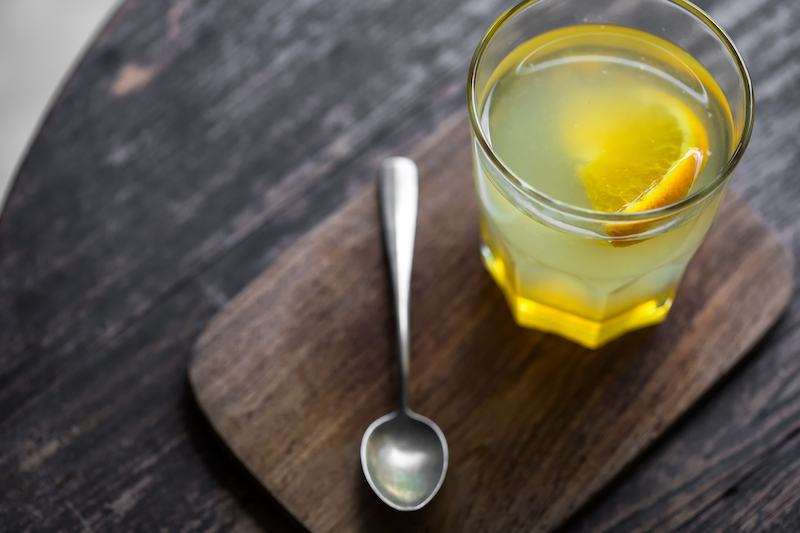Module 1: Sips
Let’s start with the most important beverage of all, water. Water should be your drink of choice. It is essential for keeping your body healthy considering the body is made up of 70-75% water. Water is essential for cleansing the body and helping to remove waste. It plays a huge role in digestion, elimination, energy, and metabolism. It can also prevent you from overeating or confusing dehydration with hunger.
A common problem for people is fatigue or lack of energy. Not having enough water contributes to fatigue since water composes over 90% of your blood. As the body becomes dehydrated, blood is the first place the body looks for more water. When the body pulls water from the blood, blood volume decreases along with your energy.
Just a 2% drop in body volume may lead to dizziness, short-term memory loss, difficulty focusing, constipation, weakness or loss of strength, muscle cramping, pain and a drop in muscular endurance. And when you lose water (say in a workout), it’s important to replenish with water.
A common problem for people is fatigue or lack of energy. Not having enough water contributes to fatigue since water composes over 90% of your blood. As the body becomes dehydrated, blood is the first place the body looks for more water. When the body pulls water from the blood, blood volume decreases along with your energy.
Just a 2% drop in body volume may lead to dizziness, short-term memory loss, difficulty focusing, constipation, weakness or loss of strength, muscle cramping, pain and a drop in muscular endurance. And when you lose water (say in a workout), it’s important to replenish with water.
Your goal is to drink half your body weight in ounces of water per day.
Example: 150 pounds = 75 ounces of water
Just as it’s important to drink enough water, it’s also important to understand water quality. Nothing in this world is created equal—especially water!
Example: 150 pounds = 75 ounces of water
Just as it’s important to drink enough water, it’s also important to understand water quality. Nothing in this world is created equal—especially water!

Water 101
Tap Water: Tap water may contain chlorine and other toxic ingredients that can destroy beneficial bacteria in the gut. This can weaken and damage the immune system.
Ionized Water: Ionized water is high in antioxidants, minerals and is very alkalizing and detoxifying. In the ionization process, many of the toxic ingredients such as chlorine are remove while the natural minerals are maintained. This process also turns the hydrogen atoms into oxygenated atoms making this water not only alkaline but very energizing.
Mineral Water: Mineral water is highly alkaline and helps to maintain essential minerals in the body. When choosing mineral water, you want to make sure that the water contains naturally occurring carbonation from the source. Sparkling water is not mineral water. Typically, carbonated beverages like sparkling water are made by adding carbon dioxide which is very acidic on the body and can lead to calcium loss and poor bone health.
Ionized Water: Ionized water is high in antioxidants, minerals and is very alkalizing and detoxifying. In the ionization process, many of the toxic ingredients such as chlorine are remove while the natural minerals are maintained. This process also turns the hydrogen atoms into oxygenated atoms making this water not only alkaline but very energizing.
Mineral Water: Mineral water is highly alkaline and helps to maintain essential minerals in the body. When choosing mineral water, you want to make sure that the water contains naturally occurring carbonation from the source. Sparkling water is not mineral water. Typically, carbonated beverages like sparkling water are made by adding carbon dioxide which is very acidic on the body and can lead to calcium loss and poor bone health.
Purified Water: Creating healthy water involves removing the harmful ingredients but keeping the beneficial minerals that are naturally in water. Purified water sounds healthy, but it is missing some important ingredients, namely minerals. Stripping the water of harmful toxins is good, but removing all the minerals from the water is not. Drinking purified water overtime can leach out valuable minerals from the body leading to poor bone health, slow metabolism, and trouble sleeping.
Distilled Water: Consumption of large quantities of distilled water washes waste products and toxins from the body due to its acidic and cleansing nature. Drinking distilled water on a regular basis can lead to mineral deficiencies and dehydration.
Filtered Water: Water filtration is the process of ridding water of any impurities through a physical barrier or chemical process. Depending on the filter, it can not only remove the impurities from the water but also the natural minerals as well. Filtered water is best used for making coffee due to its neutral taste. If you drink from a water filter at home, simply add a lemon or lime to your water to make it more alkaline.
Bottled Water: When it comes to bottled water, choose only spring, artesian or alkaline water and avoid distilled or filtered water.
Coconut Water: Coconut water makes a great replacement for sports or energy drinks.
Distilled Water: Consumption of large quantities of distilled water washes waste products and toxins from the body due to its acidic and cleansing nature. Drinking distilled water on a regular basis can lead to mineral deficiencies and dehydration.
Filtered Water: Water filtration is the process of ridding water of any impurities through a physical barrier or chemical process. Depending on the filter, it can not only remove the impurities from the water but also the natural minerals as well. Filtered water is best used for making coffee due to its neutral taste. If you drink from a water filter at home, simply add a lemon or lime to your water to make it more alkaline.
Bottled Water: When it comes to bottled water, choose only spring, artesian or alkaline water and avoid distilled or filtered water.
Coconut Water: Coconut water makes a great replacement for sports or energy drinks.

Alkalizing Water with Lemon

Mineral Water "Cocktail" (Mineral Water & Fresh Fruit)
What About Milk?
Contrary to popular belief, cow’s milk is not a healthy source of calcium. The protein molecule in cow’s milk is very large and difficult to break down. Humans are not meant to consume this type of protein due to the molecular structure of this animal protein.
Start replacing your cow’s milk with plant-based options like nut milk. There are a couple delicious nut milk recipes in the cookbook for you to try. Typically, I don’t suggest you drink nut milk by the glass but instead use it on your cereal, on oatmeal, or in your smoothies.
Start replacing your cow’s milk with plant-based options like nut milk. There are a couple delicious nut milk recipes in the cookbook for you to try. Typically, I don’t suggest you drink nut milk by the glass but instead use it on your cereal, on oatmeal, or in your smoothies.
Homemade Nut Milk
Homemade Almond Milk
Coconut Milk
What About Alcohol?
Everything can fit into a healthy lifestyle, including alcohol. However, it’s important to upgrade your alcohol just as you upgrade your food choices. At On Target Living we rank alcohol according to its pH balance with the most acidic items being less healthy.
Keep in mind that there are healthier alcohol options out there like vodka made from organic corn and bourbon made from oats. You can even find some mixed drinks made with coconut water, fresh mint, ginger, and freshly squeezed juices.
And yes, wine may contain some heart healthy antioxidants (since it is made from grapes), but you are not drinking wine for the health benefits—you are drinking wine because you like it. (And that's okay!)
But, if weight loss is your goal, I suggest you try to limit your alcohol consumption to once a week or less. Use the 80/20 rule when it comes to alcohol and don’t waste a glass of wine on the couch by yourself.
Remember that food is meant to be shared and enjoyed. Plan- ahead and make these indulgences count. If you feel that wine makes you unwind, try finding other healthier ways to relax like taking a yoga class, going for a walk, or calling a friend.
Keep in mind that there are healthier alcohol options out there like vodka made from organic corn and bourbon made from oats. You can even find some mixed drinks made with coconut water, fresh mint, ginger, and freshly squeezed juices.
And yes, wine may contain some heart healthy antioxidants (since it is made from grapes), but you are not drinking wine for the health benefits—you are drinking wine because you like it. (And that's okay!)
But, if weight loss is your goal, I suggest you try to limit your alcohol consumption to once a week or less. Use the 80/20 rule when it comes to alcohol and don’t waste a glass of wine on the couch by yourself.
Remember that food is meant to be shared and enjoyed. Plan- ahead and make these indulgences count. If you feel that wine makes you unwind, try finding other healthier ways to relax like taking a yoga class, going for a walk, or calling a friend.
Alcohol from healthiest to least healthy
- Red wine
- Rose wine
- Orange wine
- White wine
- Sweet/dessert wine
- Tequila
- Hard liquors like vodka, whiskey, rum, and gin
- Hard ciders
- Beer
- Mixed drinks
What About Coffee & Tea?
Everything can fit into a healthy lifestyle, including coffee. However, it’s important to upgrade your coffee just as you upgrade your food choices. If drinking coffee, choose organic when possible as it will be free of synthetic fertilizers and pesticides. If organic is not available, choose higher quality varieties or coffees that follow fair trade and environmental farming practices. Fair trade usually means the farmers are treated better and therefore produce a higher quality product that is more sustainable for the grower and the land. If drinking tea- choose organic antioxidant- rich green tea or de-caffeinated herbal teas like chamomile, ginger, peppermint, and licorice root. Keep in mind that this program emphasizes eating more anti-inflammatory and alkaline-forming foods including fruits, veggies, superfoods, and ancient grains. Caffeinated teas and coffee tend to naturally be more acid- forming in the body. See pH balance video to learn more. If drinking coffee or tea, upgrade to better quality sources and limit your intake to one or two cups per day. For better sleep, avoid drinking caffeinated beverages after 2pm.

Homemade Apple Cider: 8 ounces of water/mineral water, ¼ cup of apple cider vinegar, 1 tablespoon honey
